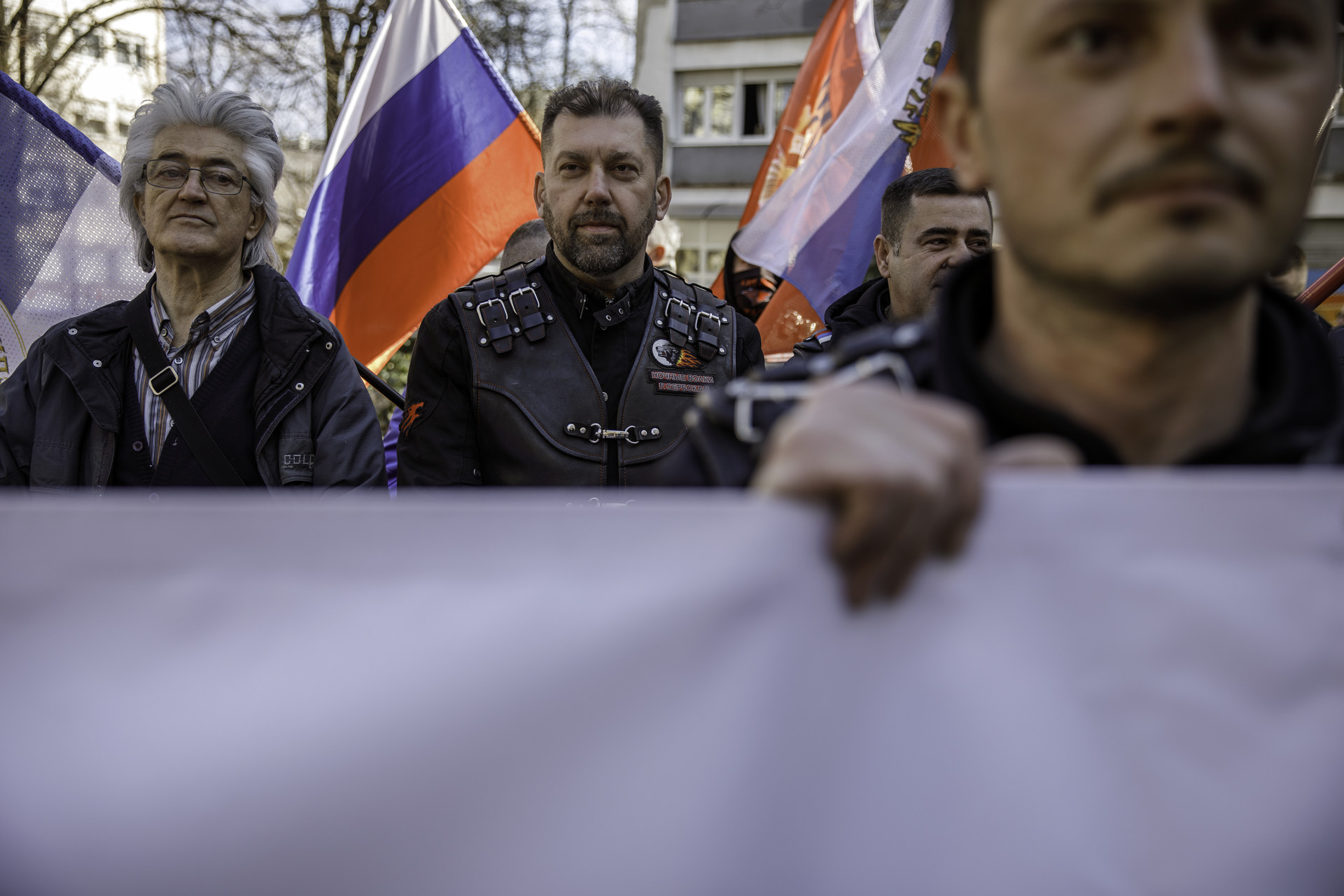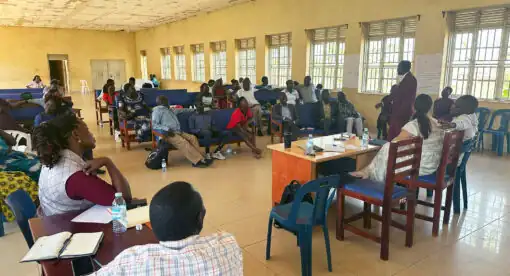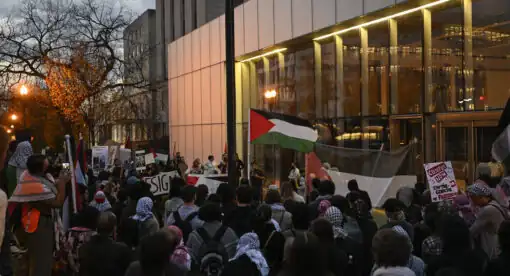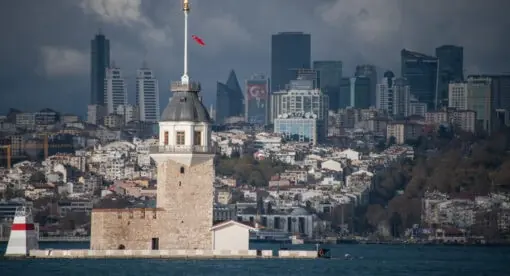Thirty years ago on April 5, the world watched in shock as the Bosnian capital of Sarajevo came under siege by Serbian forces. When the war in Yugoslavia broke out, the United States was slow to react and failed to prevent ethnic cleansing, mass rape, and genocide. The U.S. ultimately took on a leadership role in 1995, brokering the Dayton Peace Accords that ended the armed conflict. Now, Ukraine is under attack by Russia, and analysts warn that Bosnia-Herzegovina has already become “a new battleground” between Moscow and NATO. There are clear signs that the threat of violence is again looming in Bosnia, including the escalation of secessionist threats and Russian-backed paramilitary activity in Republika Srpska, the Serb-dominated entity that makes up half of post-war Bosnia. The U.S. should reprise its leadership role to help prevent a conflict before it begins, and to apply three decades of lessons learned about gender-based violence in war zones.
Gender-Based Sexual Violence in the Bosnian War
Women were not among the negotiators, mediators, or signatories of the Dayton Peace Accords. Nor are they well represented in Bosnia’s post-war political institutions, despite constitutional assurances. However, the war in the 1990s was waged on women’s bodies. The global media spotlight on the war in Bosnia helped make wartime rape of both women and men visible in international law.
Thanks in large part to the instrumental work of feminist scholars and activists, the International Criminal Tribunal for the former Yugoslavia (ICTY) specifically recognized rape as a crime against humanity. Parallel advances took place in the International Criminal Tribunal for Rwanda (ICTR), which for the first time established rape as a form of genocide, creating precedent for future ICTY cases. Unfortunately, as the ICTY wrapped up its work and officially closed in 2017, domestic prosecutions of conflict-based sexual violence by Bosnian courts have fallen short of these international legal standards.
Given clear warnings from analysts that the Russian attack on Ukraine threatens to destabilize Bosnia, U.S. policymakers need to keep the history of gender-based war crimes in the foreground when assessing and reacting to current escalations in Bosnia.
What Russia’s Invasion of Ukraine Means for Bosnia
Russia’s invasion of Ukraine is taking place against the backdrop of NATO’s eastward expansion since the end of the Cold War. Few policymakers in the United States question NATO expansion, but it does present a potential security risk, as Russian President Vladimir Putin considers Western encroachment into Russia’s sphere of influence, and in Ukraine in particular, to be a strategic loss and a geopolitical humiliation. However, Ukraine’s accession to NATO was not at all imminent when Russia struck; although NATO welcomed Ukraine’s aspirations, it never offered a formal Membership Action Plan – a tailored, multi-stage plan that prepares states for NATO accession through military, political, and economic reforms. Russia’s invasion, then, is not purely about keeping Ukraine out of NATO. It is also about destabilizing the region, cementing Russian dominance, and undoing all evidence of progress toward democratization, lest it inspire Russian civil society.
Russia’s strategic interest in the Balkans is to limit the expansion of NATO and assert its own influence in the region. Serbia, Kosovo, and Bosnia-Herzegovina are the only three countries in the Western Balkans that have not joined NATO. Serbia’s president said March 14 that his country will not join NATO. In early March, Kosovo’s parliament passed a resolution asking the government to begin seeking NATO membership. In Bosnia, NATO membership is a point of contention among the political leadership. Russia’s strategic interest is to limit the expansion of NATO and assert its own sphere of influence over the Balkans.
To understand the political impasse in Bosnia, it is important to know that the country’s post-war governmental structure is among the most complicated in the world. An annex of the Dayton Peace Accords serves as the country’s constitution, even though the accords were only ever meant to end the armed conflict, not provide the architecture for a durable state. The peace accords ultimately froze the ethnic conflict, de facto partitioning Bosnia-Herzegovina into two autonomous, ethnically defined entities: Serb-dominated Republika Srpska and the Bosniak- and Croat-dominated Federation. Compared to the two entities, the state-level government is weak by design. It is headed by a rotating three-member presidency, with one member from each of Bosnia’s main ethnic groups (Bosniaks, Serbs, and Croats). And at the top of the state power structure sits the Office of High Representative, an internationally appointed foreign supervisor with broad veto powers.
Attempts to advance Bosnia’s membership in NATO have been met with consistent pushback from Republika Srpska, influenced in part by NATO’s 1995 bombing of Serb forces to help bring an end to the Bosnian war. Despite objections from Republika Srpska, NATO began implementing Bosnia’s Membership Action Plan in 2018, inviting Bosnia to submit its first annual national program outlining changes and reforms it will make as a precondition of NATO membership. These include the state registration of military property (currently registered separately with each entity) and reforms to Bosnia’s constitution, which has been called discriminatory by the European Court of Human Rights. The situation has been roadblocked since then, as Milorad Dodik, the pro-Russian Serb member of the Bosnian presidency, vetoed the submission of the annual national program and warned that any unilateral steps taken toward NATO membership would spell the end of Bosnia. The Russian Embassy in Bosnia also made its position clear, releasing a threatening statement that in the case of practical rapprochement of Bosnia and NATO, Russia “will have to react to this hostile act.”
Current Escalations in the Balkans
A united and multi-ethnic Bosnia has long been threatened by both Bosnian Serb and Bosnian Croat separatism, and Russia is actively destabilizing the country by supporting Serb political and paramilitary actors with secessionist aims. Now, analysts warn that the Russian invasion of Ukraine may spill over into Bosnia by energizing Dodik’s pro-Russian position and emboldening Russian-backed armed secessionist groups in Republika Srpska and Serbia. In alarming moves reminiscent of the lead up to the war in the 1990s, Dodik announced last year that Republika Srpska will be pulling out of key state-level institutions that Bosnia had adopted since the end of the war at the behest of the Office of High Representative (including a common army, judiciary, and tax authority) and forming its own para-institutions – including re-assembling a separate Bosnian Serb army.
Dodik claims that these state-level institutions are not enshrined in Bosnia’s constitution and have been established through decisions imposed by High Representatives past and present. He frames his position as a return to the “original Dayton,” in which Bosnia’s two entities had more autonomy and the central government was even weaker than it is today. Dodik has been aggrieved by the ongoing international supervisory presence in Bosnia for years, but a key escalating spark came in July 2021 when the outgoing High Representative, Valentin Inzko, imposed a legal ban on genocide denial response to the continued denial of the genocide at Srebrenica by “prominent individuals and public authorities” such as Dodik himself.
Evidence is mounting that Republika Srpska has been arming its police force with military-grade weapons and equipment, signaling its willingness to form a Bosnian Serb army. Additionally, numerous paramilitary groups backed by Republika Srpska, Serbia, and Russia are currently operating in both Bosnia and Serbia under the guise of humanitarian organizations. Research has found that the humanitarian and NGO sector in Bosnia is a highly feminized space, where women activists tactfully position their work as apolitical and morally good in contrast to the corrupt and highly male-dominated space of formal politics. The escalation of paramilitary activity under the cover of humanitarian work thus represents a perverse reordering of gendered political space.
Although the lion’s share of media and policy attention has gone to Bosnian Serb secessionism, Bosnian Croat secessionism constitutes its own security challenge. Dragan Čović, leader of the main Croat political party, has formed a tactical alliance with Dodik. For many Bosnian Croats, a key issue is that unlike Bosnian Serbs and Bosniaks, they do not have majority status in either of Bosnia’s two entities. Without a Croat-dominant electoral district, the Bosnian Croat member of the presidency has repeatedly been elected without Bosnian Croat-majority support. The demand to re-draw electoral districts has enabled an alliance with Dodik in advance of the next general election scheduled for October. The current High Representative, Christian Schmidt, warned of a looming crisis in a U.N. report late last year, stating that Bosnia is facing “its greatest existential threat of the post-war period.”
Learning from a History of Wartime Sexual Violence
Given the scale of gender-based sexual violence in the Bosnian war, policymakers need to respond vigilantly to threats of renewed conflict. Although it is prevalent, gender-based sexual violence is not an inevitable consequence of war and conflict. One factor that can significantly reduce the likelihood of its occurrence is its normative sanctioning by leaders of armed groups.
While there is no evidence that paramilitary groups are planning to target women, there is also no evidence that the hyper-masculine paramilitary culture has changed since rape was used as a weapon by all sides in the 1990s war, with Bosnian Serb forces perpetrating rape on a scale so vast it became legally recognized as a genocidal strategy and a crime against humanity. In Ukraine, allegations of sexual violence by Russian forces are already being reported, as noted in a recent joint statement from the U.N. Commission on the Status of Women and Girls.
Recommendations
Inaction by the United States may result in the failure and dissolution of the U.S.-brokered peace accords and the re-emergence of conflict in Bosnia. Given the experience of war in the 1990s, a renewed conflict should be treated as uniquely threatening for women, sexual minorities, and others vulnerable to wartime sexual violence. Additionally, renewed conflict would mean that Russia is achieving its goal of destabilizing the Balkans in order to keep them within Moscow’s sphere of influence.
The issues of Bosnia’s constitutional architecture run deep, but they are formally rooted in the Dayton Peace Accords. Bosnia’s statecraft is untenable, and at a more appropriate moment in the future the United States should mediate a dialogue between Bosnian representatives to introduce gradual changes that can be implemented without threatening peace and security. Currently, however, the threat of conflict spilling over from Russia’s invasion of Ukraine demands a more stabilizing approach.
As the broker of the Dayton Peace Accords, the United States should take the lead in promoting a renewed interest for Bosnia’s security within the international community. The United States recently imposed sanctions on Dodik for threatening to undermine Bosnia’s stability. It should extend the message to Čović that secessionism will result in economic and diplomatic isolation. Washington should bolster its support for Bosnia by advocating for, and committing to financially support, a U.N. peacekeeping operation. While this could be blocked by Russia’s veto in the Security Council, bringing the issue to the General Assembly could bolster international support and apply international pressure. Notably, EUFOR Althea, the remainder of the EU’s peacekeeping force that replaced NATO forces in Bosnia, recently announced the deployment of 500 additional reserve forces to supplement 500 existing troops, citing fears that the situation in Ukraine could ignite instability in Bosnia.
The U.S.-supported peacekeeping effort should employ early warning forecasting, with specific attention devoted to tracking activity among known paramilitary formations and searching for early warning indicators of conflict-related sexual violence. The U.S. should further ensure that gender priorities are mainstreamed throughout the peacekeeping operation, both by increasing the meaningful participation of women in peacekeeping and ensuring that personnel is thoroughly trained in preventing and responding to gender-based violence. Early and preventive action can help avert a conflict before it begins.
Jelena Golubović is a Banting Postdoctoral Fellow at The Fletcher School of Law and Diplomacy at Tufts University. Her fieldwork-intensive research has been published in Journal of Refugee Studies, Ethnicities, and Anthropological Quarterly. She is a winner of the 2020 Global Affairs Canada – SSHRC International Policy Ideas Challenge. She tweets at @j_golubovic.
The views expressed in this article are those of the author and not an official policy or position of the New Lines Institute.







